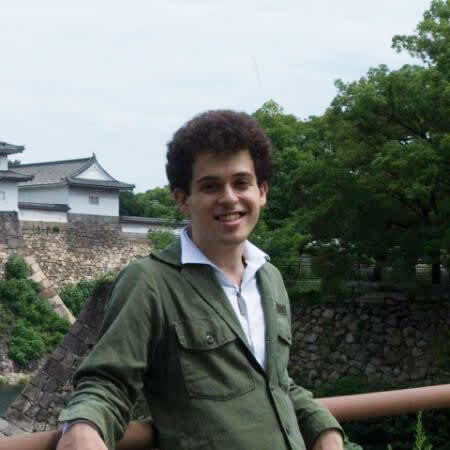Bachelor’s in Forensic Psychology Guide
Forensic psychologists make a positive impact on the criminal justice system. Their research and testimony help law enforcement and legal professionals understand why crime happens, help advocate for survivors of crime or trauma, and they provide needed mental health services for those involved in the legal system.
Although you need a doctorate to work as a licensed forensic psychologist, a bachelor’s in forensic psychology degree introduces you to the field and qualifies you for entry-level positions. You can also use your degree to apply to graduate programs.
Fortunately, many bachelor’s in psychology programs offer a general curriculum, letting you select another psychology discipline if your interests change.
What is Forensic Psychology?
Forensic psychologists provide necessary psychological intervention for people involved in the legal system and law enforcement. They accomplish these goals by interviewing suspects and survivors, performing assessments, and collaborating with other mental health professionals. Their findings help psychologists in all disciplines better understand human behavior.
Forensic psychology jobs’ responsibilities vary but may include testifying in court. Testimony helps jury members understand why a crime happened and return a fair verdict. Forensic psychologists can also recommend that a suspect lacks the mental capacity to stand trial.
Forensic psychologists’ unique job responsibilities require knowledge of behavioral, cognitive, developmental, and social psychology. Other psychologists may focus their entire career on one of these topics. As a result, forensic psychology attracts the most dedicated psychology professionals.
Reasons to Pursue a Bachelor’s in Forensic Psychology
Forensic psychologists play a vital role in the criminal justice system. However, earning a forensic psychology degree requires time, money, and dedication. Many potential pros and cons exist.
Use the table below to find out whether a forensic psychology online degree aligns with your education and career goals.
Pros and Cons of Getting a Bachelor’s in Forensic Psychology
Pros
A forensic psychology degree lets you apply to master’s or doctoral programs.
You can use your degree to apply to entry-level jobs.
Networking with peers helps you build professional connections.
Cons
Your career goals may change by the time you graduate.
You may need to take out student loans to fund your education.
You may struggle to meet academic expectations, especially if you left high school many years ago.
How to Choose the Right Forensic Psychology Program
Consider many factors when choosing a forensic psychology degree, such as cost. You may need student loans to attend a private four-year college or university.
You should also compare on-campus and online programs. The latter may offer flexible, asynchronous education. This feature can benefit you if you plan to work or raise children while in school.
Remember to research student outcomes. A large percentage of graduates enrolling in a master’s in forensic psychology program shows their undergraduate education prepared them well.
Cost
The latest data from the National Center for Education Statistics (NCES) shows that a public four-year college’s cost of attendance (COA) exceeded $14,000 in the 2020-2021 school year. Private school degree-seekers paid about double that amount, with some schools charging much more.
You can reduce your COA in many ways, such as by earning an associate degree from a local community college. You can transfer this affordable degree to a bachelor’s-completion program.
Other options include applying to schools with generous institutional scholarships and grants. Remember to fill out the FAFSA, as your financial need may qualify you for federal grants or low-interest loans.
Key Courses
A bachelor’s in forensic psychology degree features core classes that nearly all undergraduate psychology programs require. You also complete upper-division concentration coursework. Your program’s class names and descriptions may differ from those below.
Correctional Psychology
Correctional psychology focuses on treating incarcerated individuals. Class topics include the challenges of providing treatment, building personal relationships, and collaborating with corrections professionals. Although you may not pursue a career in correctional psychology, the class offers valuable insights into how some forensic psychologists treat patients. Forensic psychology jobs like these can reduce the odds prisoners will return to crime after their release.Introduction to Statistics
Knowledge of statistics helps forensic psychologists make research-based conclusions. Class topics include descriptive and inferential statistics. You will explore many real-life examples of how statistics complements psychological research. Expect to take this class early on in your major. You will use concepts you learn from it to perform research in later classes and during your graduate education.Psychological Disorders
This class introduces you to biological and societal causes of psychological disorders. Coursework covers the history of forensic psychology, the different disorders, and the latest research regarding diagnosis and treatment. What you learn in psychological disorders provides a foundation for your further education and career. You may specialize in one or some of the disorders you learn about in this class.Psychology and Law
Forensic psychology exists at the intersection of two unique fields. As a result, you must understand both. Class topics may include how forensic psychologists’ responsibilities differ in criminal and civil proceedings. The class also introduces ethical considerations professionals must follow when working with law enforcement, court members, suspects, and survivors. Expect coursework to use case studies and other real-life examples.Research Methods
You need advanced research skills to succeed in your undergraduate program and beyond. Research methods or a similar class trains you in the latest research and writing techniques. Expect to use the American Psychological Association style guide in your writing. A solid foundation of research skills benefits you in many ways. Doctoral students must write a lengthy research-based dissertation. Some forensic psychology jobs also require publishing original research.
The Application Process
Admission requirements vary by college but include a high school or GED diploma. Your local community college may offer exam preparation classes and other resources if you need to study for the GED test. Some community colleges also administer the GED certificate on campus.
A typical application requires personal information and high school or GED transcripts. Four-year schools may also require ACT or SAT scores. However, they may waive this requirement if you graduated high school or passed the GED test more than five years before applying.
Competitive colleges require college application essays and recommendation letters. Letters should come from a teacher or work supervisor.
Some schools feature unique requirements, such as restricting applicants to those ages 21 and older. You may also need transfer credit to apply. Contact schools’ admissions departments to learn more about their credit transfer policies.
What Careers Are Available for Forensic Psychologists?
Although you need a doctorate to become a licensed forensic psychologist, a bachelor’s qualifies you for many entry-level positions. Work with your school’s career center advisors to explore these and other career paths.
Crime Analyst
Crime analysts use their background in forensic psychology to evaluate data and make recommendations. Their reports affect how law enforcement agencies respond to crime or handle internal investigations. Other responsibilities may include publishing crime statistics, making presentations, and developing educational materials.
Parole Officer
Parole officers help parolees find employment, housing, job training, and other resources. They also work with parolees’ families to make sure the parolees make good decisions after leaving prison. Other responsibilities include referring parolees to outside services, such as drug treatment programs.
Police Officer
Police officers investigate crime, make arrests, and gather evidence. Other responsibilities include serving warrants and testifying in court. Officers with significant experience can become a detective or work in a supervisory role.
You can advance your career in many ways, such as by gaining professional experience or earning a graduate degree. Discuss your career aspirations with supervisors, friends, and family to find out which path best aligns with your goals.
Is Forensic Psychology Right for Me?
The answer depends on your academic and career goals. Consider both before starting a forensic psychology online degree. You may realize that another field of psychology interests you more.
A career in forensic psychology involves dealing with topics some may consider uncomfortable. You should reach out to practicing forensic psychologists about the profession’s unique challenges. Their valuable insights might lead you to new career paths.
Research forensic psychology salary potential before starting a degree. Some careers may offer little salary growth, especially if you do not earn a graduate degree. Your school’s career center can help you find the latest salary data for many jobs.
Frequently Asked Questions About Forensic Psychology Degrees
Yes, as many schools offer fully online bachelor’s degrees. They may include a bachelor’s in forensic psychology or a bachelor’s in psychology with a concentration in forensic psychology. Both options offer a rigorous educational experience preparing you for graduate admissions or an entry-level career.
Only consider online schools with proper accreditation. The Council for Higher Education Accreditation website lets you confirm schools’ accreditation status.
Note: The insights on this page — excluding school descriptions — were reviewed by an independent third party compensated for their time by BestColleges. Page last reviewed March 27, 2024.
Explore More College Resources

Psychologist vs. Psychiatrist: What’s the Difference?
Psychology and psychiatry both study the human mind, but have different treatment therapies. Discover the differences between these professions.

by Blake Weil
Updated March 29, 2023

